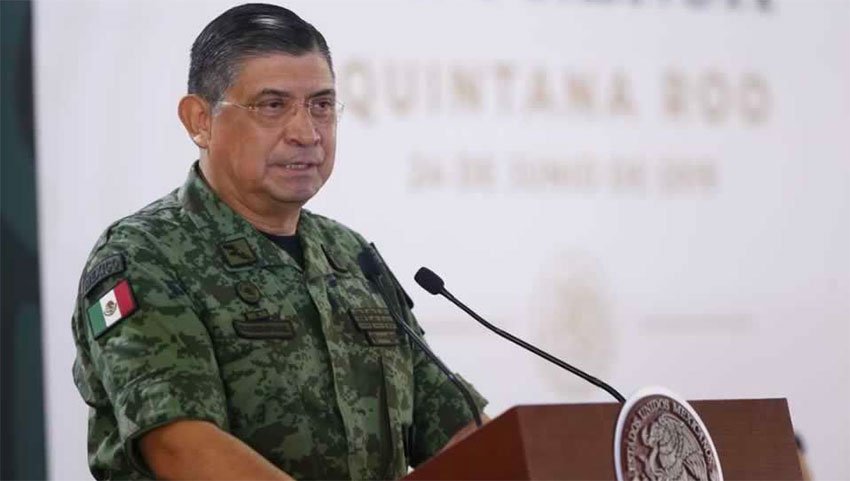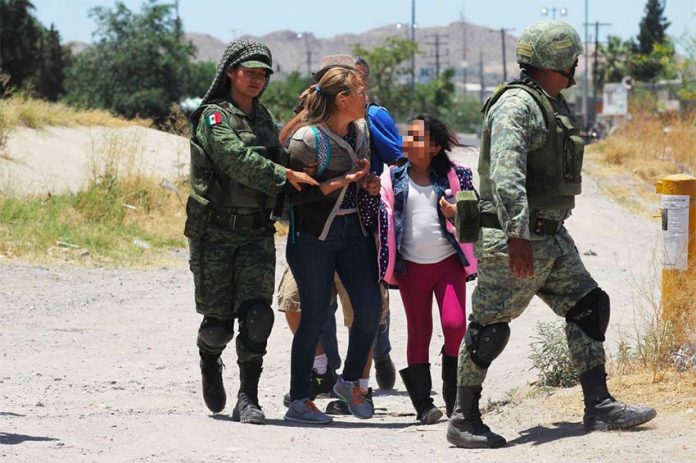Federal security forces deployed to the northern border have no orders to detain migrants, President López Obrador said yesterday.
The president’s assertion came in response to questioning over photographs published by the news agency AFP that show heavily armed National Guard troops stopping two migrant women and a girl from crossing the border into the United States from Ciudad Juárez, Chihuahua.
Under international law, migrants have the right to cross borders to seek asylum, and Mexico had not typically prevented them from doing so at the border with the United States.
Speaking at his daily press conference, López Obrador denied that the National Guard or the army have been issued with orders to arrest migrants trying to cross the northern border.
“No such order has been issued, and we are going to review that case, so that it doesn’t happen again, because that’s not our job,” he said.

The president’s statement contradicts remarks made Monday by National Defense Secretary Luis Cresencio Sandoval, who said that almost 15,000 troops have been deployed to the northern border and that they are detaining migrants.
Members of the National Guard who spoke to AFP in Ciudad Juárez on Monday confirmed that their superiors had given them orders to stop migrants attempting to cross into the United States.
“They tell us we’re not detaining enough, that migration levels are the same,” one guardsman said.
“When they saw the photo [of the migrant detention], they told us we can’t touch the migrants. But at the same time, they order us to detain them and produce results,” he added.
Another National Guard member told AFP that migrants sometimes cry and beg to be released after they have been arrested.
“But I can’t do that. They’ll punish me if I do that. I have to [detain them] to do my job, to finish my deployment here and see my family again soon.”
Mexico has stepped up enforcement against undocumented migrants after reaching an agreement with the United States on June 7 that ended President Donald Trump’s threat to impose escalating tariffs on all Mexican goods.
If 45 days after the deal was signed the United States decides that measures to stem migration are not achieving the desired results, Mexico will take “all necessary steps under domestic law” to implement a safe third country agreement, according to a supplementary agreement between the two countries.
With the aim of achieving the results sought by the United States and thereby avoiding the enactment of the appended pact as well as the possibility of the reinstatement of the suspended tariffs, the government last week completed a deployment of 6,000 National Guard troops to the southern border, a strategy that recent polls show has strong support.
However, using the new security force to stem migration, a function that is incongruent with the purpose for which it was created — to fight violent crime – has drawn criticism.
“What’s happening in terms of migration policy is a disgrace – the absence of a plan, the improvisation, the lack of a strategy,” researcher Javier Urbano of the Iberoamerican University told AFP.
The academic charged that using the National Guard to enforce immigration policies will only push migrants to seek “more dangerous, more remote routes,” creating a scenario in which human traffickers will find greater demand for their services.
Source: AFP (en)
